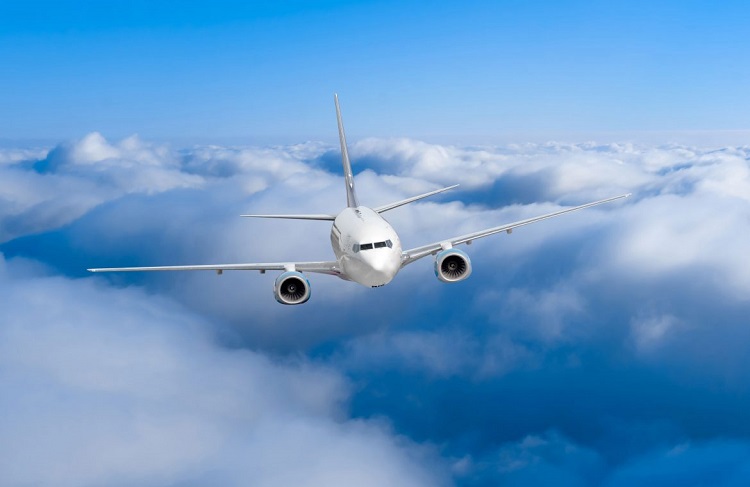Digital transformation is reshaping industries worldwide, and aviation marketing is no exception. With travelers expecting seamless, tech-driven experiences, aviation brands are leveraging digital tools to enhance customer engagement, personalize services, and stay competitive. “Aviation marketing” has increasingly embraced digital transformation, integrating tools such as data analytics, AI, and mobile platforms to offer a more connected, customer-centric experience. This shift is influencing how aviation companies operate, reach audiences, and create long-lasting customer relationships.

One of the critical drivers of digital transformation in aviation marketing is data. Today, aviation companies collect vast amounts of data across every stage of the customer journey—from online ticket purchases to in-flight services and loyalty programs. This data provides crucial insights into customer behavior, preferences, and travel trends. By analyzing this data, aviation brands can create more tailored marketing strategies, delivering targeted offers and content that resonate with specific traveler segments. Whether for frequent flyers or leisure travelers, data-driven personalization helps brands provide experiences that meet individual needs, fostering stronger loyalty.
Artificial intelligence (AI) and machine learning also play a significant role in transforming aviation marketing. AI tools help aviation companies optimize pricing, manage flight demand, and predict trends in traveler preferences. For instance, AI algorithms can adjust prices dynamically, offering competitive rates based on real-time demand and market conditions. AI-powered chatbots and virtual assistants also enhance customer service by providing instant answers to frequently asked questions, booking assistance, and travel tips. Through automation and predictive analysis, AI enables aviation companies to make smarter, data-backed marketing decisions, positioning themselves as innovative and customer-focused.
Mobile technology has become indispensable in aviation marketing. With a significant portion of travelers relying on mobile devices for planning and booking trips, airlines and travel providers are investing in apps and mobile-optimized websites that make the travel experience more accessible and convenient. Through mobile platforms, customers can check in, access boarding passes, receive flight updates, and even manage loyalty points—all from the palm of their hand. This level of convenience not only enhances the customer experience but also provides aviation brands with valuable engagement data, allowing them to refine their marketing approaches continually.
Social media is another transformative force in aviation marketing. Platforms like Instagram, Twitter, and Facebook allow aviation brands to connect with travelers on a personal level, promoting destinations, sharing travel tips, and highlighting special offers. Social media also serves as a channel for real-time communication, enabling airlines to address customer questions and concerns promptly. Additionally, aviation brands are increasingly working with travel influencers and content creators to reach new audiences. These partnerships showcase travel experiences and amenities, bringing the brand closer to consumers through authentic, relatable content. In the age of digital transformation, social media remains an essential tool for aviation brands to engage with global audiences.
One of the most impactful aspects of digital transformation in aviation marketing is the focus on personalization. Personalized marketing involves tailoring messages, offers, and services to match customer preferences and behavior. For example, frequent flyers might receive exclusive upgrades, while leisure travelers could be targeted with destination-specific promotions. By using data to understand customers better, aviation brands can offer highly relevant recommendations, improving customer satisfaction and brand loyalty. As personalization becomes a priority in aviation marketing, companies can set themselves apart in a competitive market by creating memorable, individualized travel experiences.
As environmental consciousness rises, sustainability is becoming a core component of digital transformation in aviation marketing. Today’s travelers are increasingly concerned about their carbon footprint, prompting airlines to adopt eco-friendly practices. Many aviation brands are highlighting their environmental initiatives, such as fuel-efficient aircraft, carbon offset programs, and reduced in-flight waste, as part of their marketing strategy. By sharing these commitments through digital channels, brands connect with environmentally conscious travelers, reinforcing a message of responsibility and forward-thinking. As sustainability continues to shape consumer choices, aviation brands that embrace eco-friendly practices and communicate them effectively will likely gain a competitive edge.
Customer loyalty programs are also benefiting from digital transformation in aviation marketing. Instead of traditional points-based systems, airlines are exploring innovative loyalty programs that provide unique experiences and perks. Digital tools allow for more personalized loyalty offers, based on individual travel patterns and preferences. This transformation enables brands to engage customers on a deeper level, rewarding them with meaningful benefits and enhancing brand loyalty. With digital platforms, travelers can easily access and manage their loyalty accounts, redeem rewards, and receive real-time updates on special offers. By modernizing loyalty programs, aviation brands are strengthening their relationships with travelers in an increasingly digital world.
